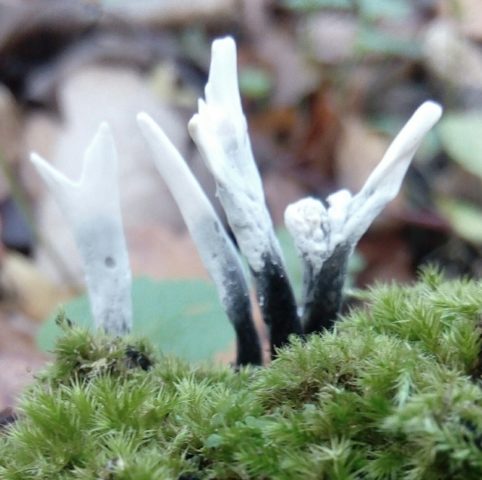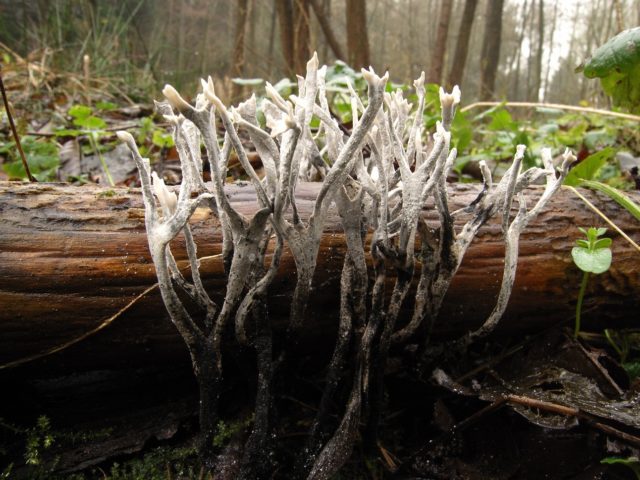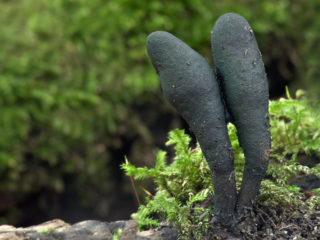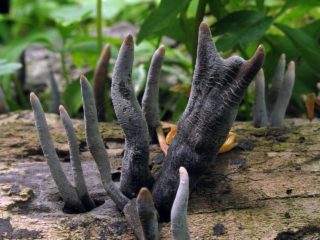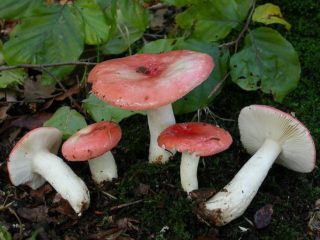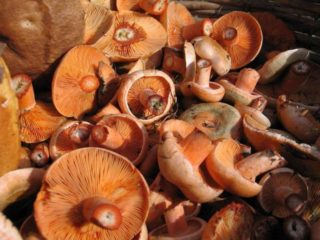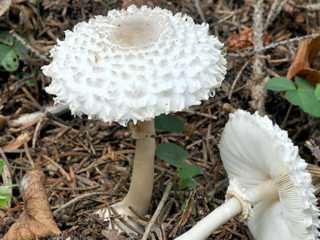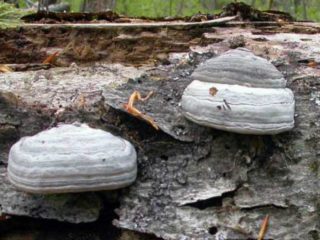Content
There are mushrooms of rather unusual and bizarre shapes that resemble various objects. Xylaria Hypoxilon is a fruiting body belonging to the Xylariaceae family, Xylaria genus, Xylaria Hypoxylon species.
What do xilariae hypoxilon look like?
The shape of this ascocarp resembles deer antlers, and from a distance the mushrooms look like coral polyps. They consist of several cylinders emerging from under the rotten leaves in one heap. As they grow, the fruiting bodies flatten, curl and bend. The flesh of the body is firm and thin. They are black at the base, dark gray above. It is not for nothing that the British call it "soot on a candle." Old xilariae take on a charcoal color. The surface is velvety in the lower part, with short hairs.
The height of the Xilaria Hypoxilon reaches 8 cm. The width reaches 8 mm. These are marsupial mushrooms: gray or dull white ascospores are scattered all over the body, similar to buds or cones (perithecia). Under the microscope, cylindrical bags with a high stem can be distinguished. They have small holes from where mature spores are released.
Where do xilariae hypoxilon grow
These mushrooms grow in deciduous, less often coniferous forests on rotten foliage or old stumps. On the territory of our country, they can be seen in the northern part.
But they are common not only in the northern hemisphere: they are also found in Cuba, and even in Australia. Sometimes mushroom pickers come across small groups of "deer antlers". But this is not common: these are rare species of Xylaria. They ripen in the fall before the onset of winter. But they persist for a long time: even in spring, their dried and blackened bodies protrude from under the snow.
Is it possible to eat hypoxilone xilariae
The Xiliaria hypoxilon mushroom is considered inedible due to its small size, lack of a pleasant mushroom taste, and dry pulp. There is no information about the toxicity of these ascocarps.
Healing properties
Mushrooms can be used for the production of medicines, as their extracts have the following properties:
- They have hemagglutinating effects, which makes it possible to use them for the diagnosis of various viral diseases.
- Their antiproliferative properties can inhibit the growth of cancer cells.
- They are able to stop the mutagenic effects of chemical radiation.
Conclusion
Xilaria Hypoxilon and its properties are not fully understood. Research on this fungus is ongoing. There are theories about the possibility of using its bioactive components for the treatment of cancer and immunodeficiency.
